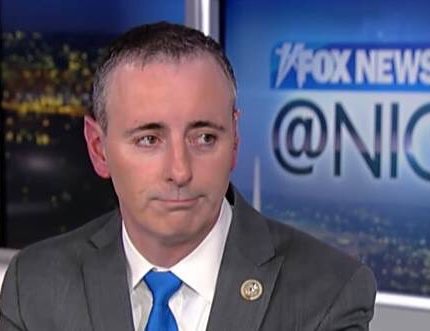Republican Congressman Brian Fitzpatrick’s no vote on the Inflation Reduction Act Friday reveals what many constituents have already surmised: Fitzpatrick only cares about keeping his seat in Congress – not about the people he’s supposed to represent in Pennsylvania’s 1st Congressional District.
The Inflation Reduction Act (IRA) contains provisions that will benefit everyone – even voters who continue to vote against their own best interests by supporting GOP candidates.
READ: Rep. Brian Fitzpatrick Votes Against Abortion Rights, Again
What, exactly, did Fitzpatrick vote against?
1. Allowing Medicare to negotiate drug prices
2. Prohibiting Big Pharma from raising prices above the rate of inflation
3. Limiting annual out-of-pocket prescription drug costs for older adults
4. Capping insulin prices to $35.00/vial for Medicare recipients
The United States pays the highest price for pharmaceuticals – sometimes two to three times the amount paid by other countries for the same drugs. For years, some seniors on fixed incomes have been forced to ration their prescription medications, or forgo them altogether, because of sky high prices. The IRA will limit the financial exposure to seniors by limiting the annual out-of-pocket expense to $2,000 annually.
There is no downside to supporting these proposals unless, of course, you accept money from Big Pharma.
In the 2021-2022 campaign cycle, Fitzpatrick has accepted $26,250.00 from the Pharmaceutical/Health Care Products industry.
5. Preventing higher health insurance costs
The IRA will extend enhanced subsidies to the Affordable Care Act (ACA) making health insurance more affordable through 2025. The ACA has reduced the number of uninsured Americans to a record low and, coupled with the IRA, will prevent three million people from losing their health care coverage.
It’s hard to think anyone could be opposed to making health care insurance more affordable except, possibly, those who take campaign contributions from the insurance lobby.
Fitzpatrick accepted $87,750.00 from the insurance industry during the 2021-2022 campaign cycle.
6. Dramatically reducing carbon pollution
7. Lowering energy costs
8. Providing financial support to communities to remedy existing high levels of environmental dangers
The IRA will reduce emissions by helping people move away from costly fossil fuels by lowering the cost of solar panels, electric vehicles, energy efficient appliances and heat pumps. Financial incentives will be provided for manufacturing wind turbines, solar units and electric car batteries. Economic support for transitioning to clean energy will be provided at the local and state levels.
Unrelenting heat, storms, drought and wildfires make climate change an irrefutable fact. For the here and now, as well as for future generations, this is a necessary investment to keep the earth inhabitable. Clearly, money from the fossil fuel industry would be betting against humanity and who would do that? Brian Fitzpatrick.
The oil and gas lobbies have been generous in providing Fitzpatrick with $25,560.00 in the current election cycle.
9. Creating jobs
This is a no-brainer. Who could vote against this? Brian Fitzpatrick, despite taking cash from labor unions, just voted against their best interests. In the 2021-2022 campaign cycle Fitzpatrick accepted funds that exceed a quarter of a million dollars from transportation unions, public sector unions, building trade unions and industrial unions.
10. Implementing a fair tax code so that the top 1% will pay their fair share of taxes
By voting no to the Inflation Reduction Act, Fitzpatrick was prepared to greenlight higher taxes for the middle class in order to offset tax write-offs for the wealthy. He has no problem with a tax code (largely drafted by Pennsylvania Republican Senator Pat Toomey) that forces the average family to pay more in taxes so that the top 1% may pay less.
The Inflation Reduction Act is legislation for the people – all of the people – and Fitzpatrick, by holding the GOP party line and putting his partisan politics ahead of his constituents, was willing to compromise the financial future of many in Bucks County.






